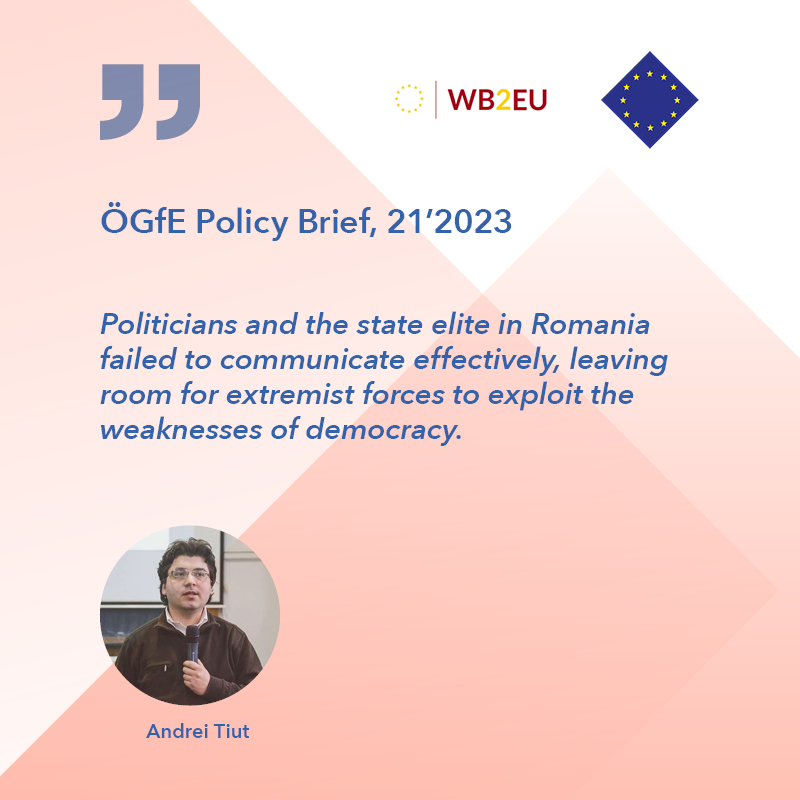Democracy from below in Romania: how far can it get before breaking, Andrei Tiut, ÖGfE Policy Brief, 21’2023
Between 2012 and 2017, successive waves of protests brought public officials to account. Governments were overthrown, and significant pieces of legislation were overturned. In 2016, a new liberal party (Save Romania Union) entered parliament, asking for the democratisation of public life and boasting its own internal democratic decision-making. In 2020, the party entered parliament and, then, the government. Events like these contributed not only to increases in the quality of democracy as measured by international indexes but also in democratic resilience.
Since then, the situation has deteriorated. The quality of democracy has declined, reaching a low point in 2021, according to V-Dem, and the government has been unable to communicate with the population effectively in successive crises. Public dissatisfaction did not manifest itself through pro-democratic protests like in the past; on the contrary, we can see an increase in the voting intention for extremist parties and a general decrease in trust in democratically oriented institutions, be they internal or international.
However, this Policy Brief notes that public pro-democratic protests have historically been slow to take off, and even when they did, they were ignited by comparatively less important issues, appearing as „black swans“. This may be due to the failure of protest movements to crystallise into permanent structures of representation and, in a more general sense, the failure of civil society to become a representative voice for the public.
As such, it is difficult to say to what extent movements from below can influence Romania’s democracy for the better. Precedents suggest that, despite apparent societal calm, the public will ultimately make its voice heard and will oppose a political class that it trusts less and less. Typically, there is a delay between the stimulus and the societal reaction, but this delay does not extend beyond parliamentary elections. Unfortunately, the current situation clearly shows that a significant part of the discontent may simply be channelled into radicalisation, and those feeling underrepresented may choose extremist parties.
Policy Recommendations
- For upcoming democratic movements: Clarify your goals and organisational structure early on and then try to become entrenched within (groups of) society. It will be a marathon, not a sprint.
- For donors and funders: You get what you pay for. If you pay for projects, you will have successful projects. But if you want a vibrant, organic civil society, consider long-term and core funding.
- For established parties and politicians: Listen to rather than discourage challenges coming from below, as long as they are pro-democratic.
Metaphorically speaking, Romanian society may appear silent, but it is rather speech-impaired.
Andrei Tiut Tweet



